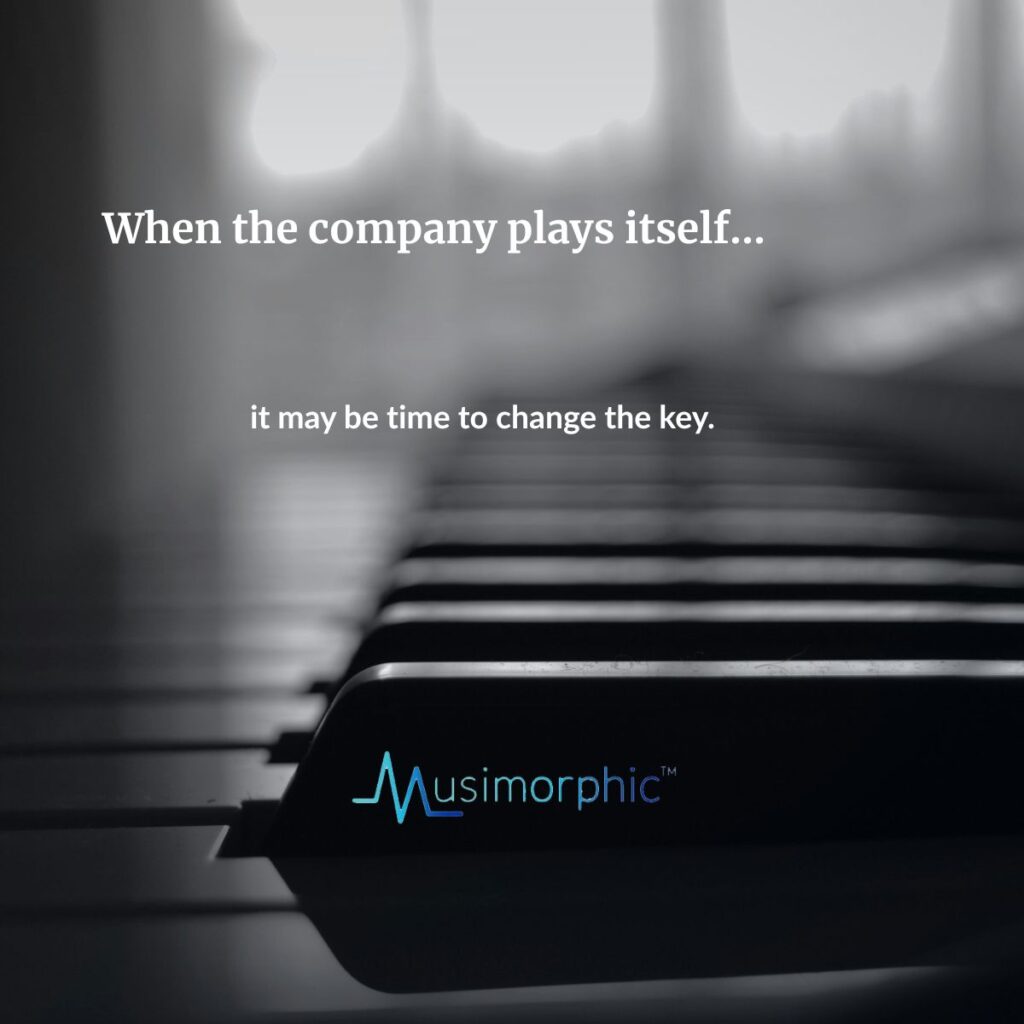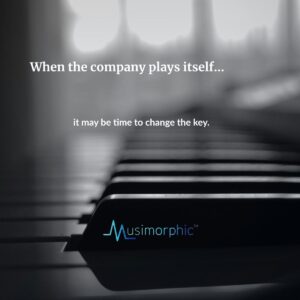Most founders don’t talk about the moment when their company starts to hum on its own. Growth steadies, the tempo changes, and something inside begins to ask a deeper question: what’s next?
That question rarely shows up on a spreadsheet. It sounds more like a subtle shift in rhythm—an urge to step back, a curiosity about legacy, a sense that the melody wants to resolve in a new key.
 At Musimorphic we meet founders in that space between achievement and renewal. Not with deals or data, but with listening. Music gives us a language for transition: dissonance when identity and purpose pull apart, harmony when they realign, silence when something new wants to emerge.
At Musimorphic we meet founders in that space between achievement and renewal. Not with deals or data, but with listening. Music gives us a language for transition: dissonance when identity and purpose pull apart, harmony when they realign, silence when something new wants to emerge.
If you’ve built a company that now plays itself, you may be feeling what I call the pre-exit resonance. It’s not burnout; it’s the sound of a life ready to modulate. The real work isn’t selling or stepping away—it’s integrating what you’ve created so the next movement begins with intention.
There aren’t metrics for this yet. The process is new, though grounded in what neuroscience, leadership research, and the oldest human technology—music—already confirm: when the whole person listens, decisions become clearer and transitions become artful.
Our role is simple: to offer founders a place to hear themselves again. Sometimes that begins with a short listening exercise; sometimes with a private conversation about legacy that has nothing to do with valuation. Every time, something true surfaces—a note, an insight, a sense of timing.
If you’re sensing that shift, you’re not alone. Many leaders are beginning to treat succession as composition rather than transaction. The music isn’t ending; it’s changing key.
Musimorphic exists for that moment—when the sound of purpose returns, when a founder becomes a composer again, and when the next movement of your life’s song begins to play.
——————————————–
Over the course of more than 40 years of paying attention to how music works on us, Bill Protzmann has rediscovered the fundamental nature and purpose of music and accumulated a vast awareness of anthropology and sociology, as well as the effects of music, the arts, and information technology on human beings. Bill has experimented with what he has learned through performing concerts, giving lectures, facilitating workshops, and teaching classes. He first published on the powerful extensibility of music into the business realm in 2006 (here and abstract here). Ten years later, in 2016, he consolidated his work into the Musimorphic Quest. In this guided, gamified, experiential environment, participants discover and remember their innate connection to this ancient transformative technology. Also, The National Council for Behavioral Healthcare recognized Bill in 2014 with an Inspiring Hope award for Artistic Expression, the industry equivalent of winning an Oscar.
In addition to individuals, Musimorphic programs support personal and professional development and wellness for businesses, NPOs and at-risk populations.



